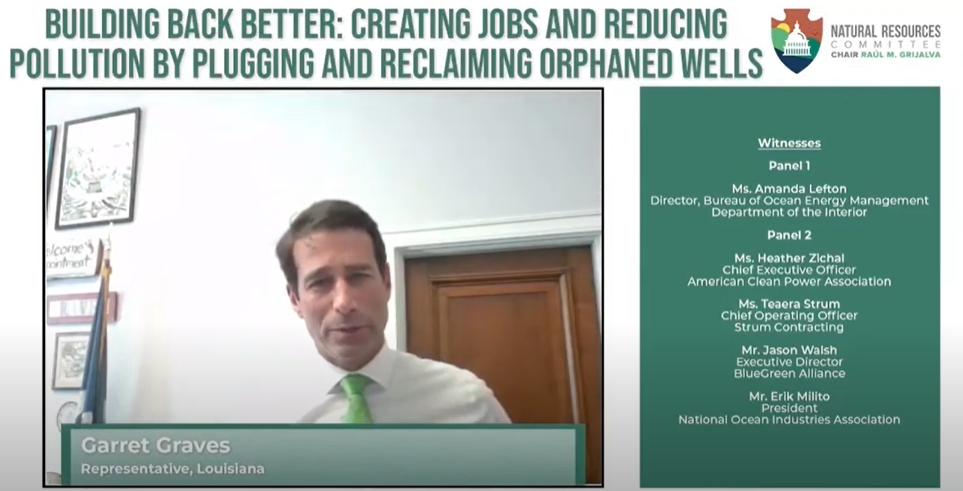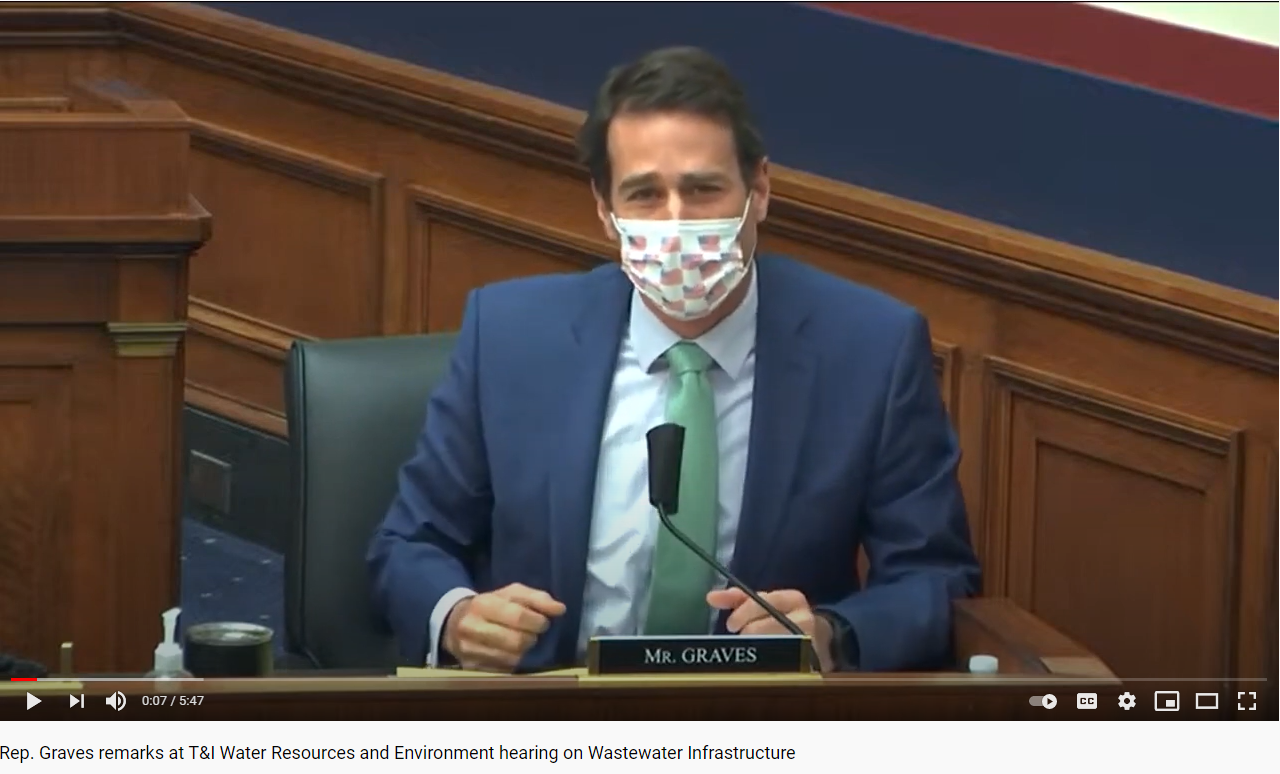Press Releases
Graves – BOEM officials should be knowledgeable about offshore energy production, and why should people in Louisiana pay for Los Angeles’ water system?
Washington, DC,
April 21, 2021
During two separate subcommittee meetings this week, U.S. Congressman Garret Graves raised points surrounding energy and infrastructure – both major policy areas for Louisiana. Specifically, he made the case that the Administration should have to be as well-informed as possible when considering offshore energy moratoriums and the federal government should use taxpayer dollars in a way that provides the best, and most practical return on investment. Graves participated in the Energy and Mineral Resources Subcommittee hearing that focused on offshore energy production and creating jobs through offshore wind. Just last week, Graves brought Lafourche Parish President Archie Chaisson to the U.S. House Natural Resources Republican Forum: "Where are the Jobs?". The forum provided an opportunity to highlight the Administration's recent executive orders and their impact on the energy sector, local businesses, restaurants and more – all interwoven parts of Louisiana's 6th Congressional District. Graves and Chaisson highlighted the role offshore energy production has in protecting Louisiana's coastal communities through hurricane and flood protection. 
A few of the points Graves' made: In particular, Graves questioned the role of Congress and the Administration dictating energy policy – that directly impacts Louisiana – without adequate insight. Graves routinely invites Members of Congress and Administration officials to South Louisiana to see firsthand the energy industry in action, and invited Amanda Lefton, Director of the Bureau of Ocean Energy Management at U.S. Department of Interior, to do the same. "I do hope you have the chance to come down to Louisiana, spend some time offshore, to better understand and experience that industry, understand it's importance to our resiliency investments, our coastal communities, our economy, and how we actually produce with lower emissions than virtually any other source in the U.S." "The offshore energy in the state of Louisiana it is – there are six states that produce and Louisiana produces more than the other five times four – it is one of the largest revenue streams for the U.S. Treasury. Funding everything from veteran programs, education programs, infrastructure programs, health care programs, senior citizens programs." "My concern is without background we could have some decisions made that aren't necessarily as informed." "How do you reconcile some of the decisions this Administration is making with effectively shutting down offshore energy production?" ## The second hearing – held by the Water Resources and Environment Subcommittee – focused on wastewater infrastructure and the measures to promote resiliency, and climate adaptation and mitigation. Graves questioned the witnesses on user fee mechanisms, especially as Congress evaluates their potential role in possible transportation and infrastructure packages this year. 
A few of the points Graves' made: "What is the federal government's role in infrastructure?" "When you get beyond there, the question starts getting a little bit more challenging. One of the things about the federal government's role in highways or interstates for example is there is a user fee mechanism. You go and pay a tax for every gallon of gas you buy. The more gas you burn, because you have an inefficient vehicle or you drive more miles, the more of a user fee you pay." "In the case of water systems, there is a similar user fee mechanism. But that is collected entirely at the local level." "Why is this a federal responsibility for us to jump in and pay this when you have a user fee mechanism in place?" "Why should people in Louisiana pay for Los Angeles' water system? |



